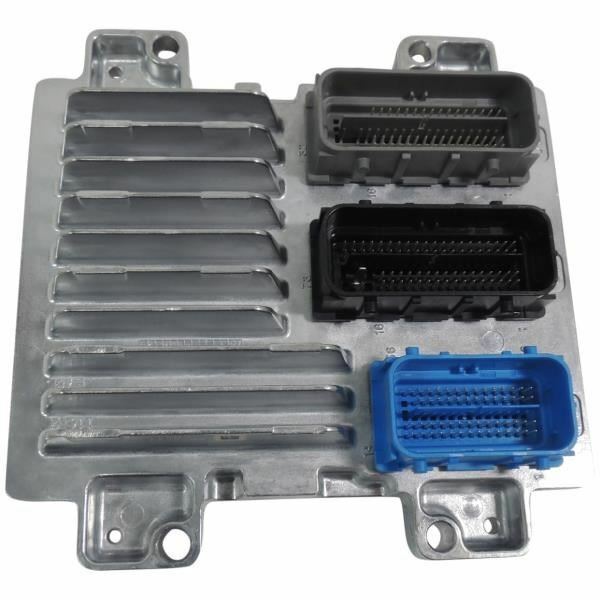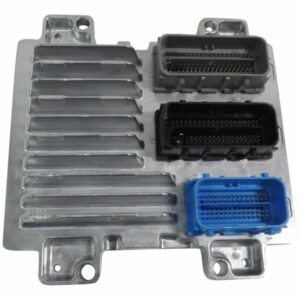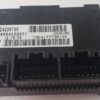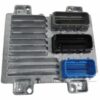If you’re dealing with frustrating and unpredictable engine problems in your 2011-2015 Chevrolet Volt, the Engine Control Module (ECM) is often the culprit. As the brain of your vehicle’s powertrain, a failing ECM can cause a cascade of issues, from a persistent Check Engine Light to a car that won’t start at all. This isn’t just an inconvenience; it’s a critical component for your vehicle’s performance, fuel economy, and emissions compliance.
This is a direct-replacement Engine Control Module, part number 12663405, for a wide range of General Motors vehicles, including the Chevy Volt. The most significant benefit we offer is our professional programming service. Before this module ships, we will flash it with the latest, most stable software from GM, specifically matched to your vehicle’s VIN. This crucial step ensures seamless integration, restoring factory performance and communication between all vehicle systems without requiring an expensive trip to the dealership for programming.
A Technician’s Notebook
I remember a 2013 Chevy Volt that came into the shop with a baffling issue. The owner reported intermittent stalling in traffic and a complete no-start condition on random mornings. There were no consistent trouble codes, just a generic U0100 ‘Lost Communication with ECM/PCM’ code that would pop up occasionally. After hours of chasing wires and checking grounds, we swapped in a known-good ECM. The problem vanished instantly. The original module had an internal hairline fracture on the circuit board that would separate when it heated up, cutting power. This pre-programmed module is the exact fix for these hard-to-diagnose electronic gremlins.
Is Your GM Vehicle Showing These ECM Failure Signs?
A faulty ECM can manifest in many ways. If you’re experiencing any of the following, this module is the likely solution:
- ✔ Persistent Check Engine Light (CEL)
- ✔ Engine stalling, stumbling, or rough idling
- ✔ Complete no-start or intermittent starting problems
- ✔ Noticeable decrease in fuel efficiency
- ✔ Failed emissions test
- ✔ Unexplained warning lights on the dashboard
- ✔ Stored diagnostic trouble codes (DTCs) like P0601 (Internal Control Module Memory Check Sum Error) or P0606 (ECM/PCM Processor Fault)
A Straightforward Guide to Installation
Replacing the ECM is a manageable job for a confident DIYer. With our pre-programmed module, you eliminate the most complex step. Always consult a vehicle-specific repair manual, but here is a general guide:
- Safety First: Disconnect the negative terminal from your vehicle’s 12V battery and secure it away from the post to prevent accidental reconnection.
- Locate the Module: On the 2011-2015 Volt, the ECM is located in the left-hand rear of the engine compartment. For other models, its location may vary (e.g., LH front on Silverado/Sierra).
- Disconnect Connectors: Carefully release the locking tabs on the wiring harness connectors and pull them straight out from the module. Avoid pulling on the wires themselves.
- Remove the Old ECM: Unbolt the mounting hardware holding the old module in place and remove it from the vehicle.
- Install the New ECM: Mount your new, pre-programmed ECM in the same location and secure it with the original hardware.
- Reconnect Everything: Plug the wiring harnesses back into the new module until they click securely in place. Reconnect the negative battery terminal.
- Perform Relearn (If Necessary): While our programming handles the heavy lifting, some vehicles may require a simple security or crankshaft position sensor relearn procedure. This can often be done without special tools and instructions can be found in repair manuals or online forums.
Verified Vehicle Compatibility
This module is a direct replacement for part number 12663405 and is interchangeable with part numbers 12668866, 12668994, 12643636, 12670335, 22819494, and 12692200. It fits a wide array of GM vehicles. Please verify your part number or contact us with your VIN to confirm fitment.
- Buick Encore: 2013-2016 (1.4L)
- Buick ELR: 2014-2016
- Chevrolet Cruze: 2012-2016 (Gasoline models)
- Chevrolet Silverado 2500/3500: 2012-2016 (6.0L)
- Chevrolet Sonic: 2012-2016 (1.4L)
- Chevrolet Spark: 2014-2015 (Gasoline model)
- Chevrolet Suburban 3500: 2016
- Chevrolet Trax: 2013-2016
- Chevrolet Volt: 2011-2015
- GMC Sierra 2500/3500 & Denali: 2012-2016 (6.0L)
- GMC Savana / Chevy Express Vans 2500/3500: 2016 (4.8L, 6.0L)
Why do you need my VIN?
Why do you need my VIN?
Your Vehicle Identification Number (VIN) is essential for us to program the ECM correctly. The VIN allows us to access the exact software calibration file for your vehicle’s specific engine, transmission, and options package. This ensures the module works perfectly right out of the box.
Is this a plug-and-play part?
Yes, for the vast majority of vehicles. Because we program it to your VIN before shipping, it eliminates the need for dealer-level programming tools. In some cases, a simple ‘security relearn’ or ‘crankshaft variation relearn’ may be needed, which can typically be done without special equipment.
What is the difference between an ECM and a PCM?
The terms are often used interchangeably. ECM stands for Engine Control Module, while PCM stands for Powertrain Control Module. A PCM controls both the engine and the transmission, while an ECM typically just controls the engine. For this application, the terms refer to the same component.
Will this fix my check engine light?
If the check engine light is caused by an internal failure of the ECM (like codes P0601-P0606), then yes, this part will resolve the issue. However, if the light is on due to a faulty sensor or other component, you will still need to diagnose and repair that separate problem.



